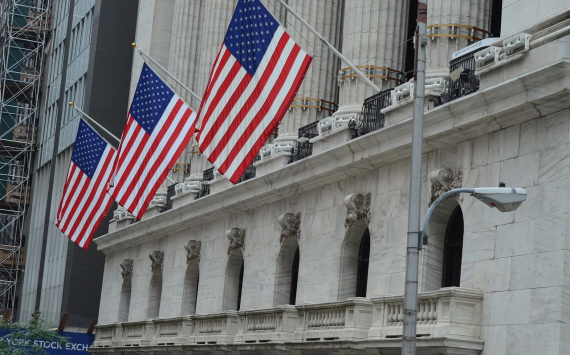Description
Usana Health Sciences is a Utah-based multi-level marketing company that produces various nutritional products, dietary supplements and skincare products. Usana products, most of which are manufactured at the company's West Valley City facility, are sold in 24 countries via a network of independent distributors (referred to as "associates"). In 2015 Usana was the 24th largest multi-level marketing company in the world by revenue.
History
In 1992, immunologist and microbiologist Myron Wentz moved his diagnostic testing company, Gull Laboratories, from Salt Lake City to West Valley City, Utah and spun it into Usana Health Services, a multilevel marketing manufacturer of supplements. Beginning in 1993, Dallin A. Larsen served as Usana's vice president of sales (and later as consultant to Usana's president and special advisor to the board of directors) prior to founding the MLM beverage company Monavie in 2005. Usana's products are not available through retail channels, but instead can only be obtained through one of its independent distributors (referred to as "associates") or by direct order through the company.
On 20 February 2007, Barry Minkow, founder of the Fraud Discovery Institute, distributed a 500-page report to officials at the U.S. Securities and Exchange Commission (SEC), the Federal Bureau of Investigation (FBI), and the Internal Revenue Service (IRS) accusing Usana of operating an illegal pyramid scheme. The SEC conducted an investigation of Usana's business practices in March 2007 and found nothing incriminating, concluding its inquiry with no enforcement action recommended. Minkow acknowledged that he was shorting Usana's shares, hoping to profit from a drop in the stock price. In April 2007, a class action lawsuit was filed that alleged Usana common stock had artificially inflated prices. In August 2007, Usana was notified by the Securities and Exchange Commission (SEC) that its shares were subject to delisting from the NASDAQ due to its Form 10-Q, and was determined to be in compliance that October.
In January 2008, a shareholder suit was filed with allegations that Usana had misled investors about the sustainability of its growth and business model. The cases were dismissed and the company was cleared by the U.S. Securities and Exchange Commission after an informal inquiry into the allegations, stating that it did "not intend to recommend any enforcement action by the Commission." Later that year, two Canadian Usana distributors were awarded $7 million in compensation for damages related to their wrongful dismissal from the company. The firm had terminated their positions in 2003 because it believed the distributor had violated the companies' policies and procedures.
Usana filed suits against Minkow and his company claiming defamation and stock manipulation. Usana dropped the defamation suit and in March 2008 U.S. District Judge Tena Campbell threw out four of the five claims brought by Usana against Minkow ruling that Usana's claims violated California's anti-SLAPP law for suing Minkow for fair criticism and that Usana did not show a reasonable probability of winning on those claims. The remaining charge of stock manipulation was settled in July 2008 when Usana and Minkow reached an undisclosed settlement, which included the removal of all Usana-related materials from the Fraud Discovery Institute website, a related Chinese website, and from YouTube. Minkow also agreed to never trade in Usana's stock again.
In December 2010, Usana completed the application process to transfer the listing of its common stock from the NASDAQ National Market System, which it had been trading on since 1996, to the New York Stock Exchange. The transfer became official at the beginning of 2011. It received drug-establishment registration from the Food and Drug Administration to manufacture over-the-counter drugs later that year. In 2012, 91% of product sales was purchased by associates. The company acquired BabyCare Ltd., a China-based prenatal supplement company, in 2013 and announced that it would build a manufacturing facility in the country. At the end of 2014, The company had 349,000 active associates and 81,000 active "Preferred Customers" in its worldwide distribution network.
By 2018, Usana had reported record revenue due to growth in the Asia Pacific region, though it recorded a 7% drop in net sales during its 2019 annual report. Usana has partnered with HealthCorps on health education for children and, in 2019, the Usana Foundation's Kids Eat program opened a facility to pack and distribute food for childhood hunger in the Utah area. It also was announced as the official nutritional partner of the Spartan Race endurance brand in the United States. Its sales for the first quarter of 2020 declined by 2.3 percent compared with 2019 numbers.
In February 2019, the Ministry of Commerce in China suspended operations for all multi-level marketing companies and participants to conduct a 100-day review of the health foods industry in the country due to exaggerated product advertising claims and questionable health products in the unregulated industry. Chinese departments initiated "Hundred Days of Action" to clean up the health market where 49 products from various companies were revoked, 54 food business licenses of various companies were revoked, 90 business licenses of various companies were revoked and 465 counterfeit and fake dens were destroyed. 85 companies, including BabyCare Ltd., a Usana subsidiary, signed a declaration to self-discipline and regulate operations with BabyCare speaking at an event hosted by the Chinese government.
























